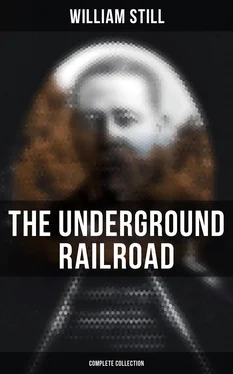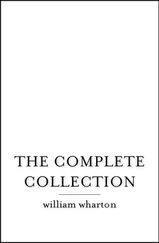In view of the unparalleled injustice which Mr. S. had suffered, as well as on account of the aid he had rendered to the slaves, on his arrival in this city the colored citizens of Philadelphia felt that he was entitled to sympathy and aid, and straightway invited him to remain a few days, until arrangements could be made for a mass meeting to receive him. Accordingly, on last Monday evening, a mass meeting convened in the Israel church, and the Rev. Wm. T. Catto was called to the chair, and Wm. Still was appointed secretary. The chairman briefly stated the object of the meeting. Having lived in the South, he claimed to know something of the workings of the oppressive system of slavery generally, and declared that, notwithstanding the many exposures of the evil which came under his own observation, the most vivid descriptions fell far short of the realities his own eyes had witnessed. He then introduced Mr. Smith, who arose and in a plain manner briefly told his story, assuring the audience that he had always hated slavery, and had taken great pleasure in helping many out of it, and though he had suffered much physically and pecuniarily for the cause' sake, yet he murmured not, but rejoiced in what he had done. After taking his seat, addresses were made by the Rev. S. Smith, Messrs. Kinnard, Brunner, Bradway, and others. The following preamble and resolutions were adopted —
WHEREAS, We, the colored citizens of Philadelphia, have among us Samuel A. Smith, who was incarcerated over seven years in the Richmond Penitentiary, for doing an act that was honorable to his feelings and his sense of justice and humanity, therefore,
Resolved , That we welcome him to this city as a martyr to the cause of Freedom.
Resolved , That we heartily tender him our gratitude for the good he has done to our suffering race.
Resolved , That we sympathize with him in his losses and sufferings in the cause of the poor, down-trodden slave.
W.S.
During his stay in Philadelphia, on this occasion, he stopped for about a fortnight with the writer, and it was most gratifying to learn from him that he was no new worker on the U.G.R.R. But that he had long hated slavery thoroughly, and although surrounded with perils on every side, he had not failed to help a poor slave whenever the opportunity was presented.
Pecuniary aid, to some extent, was rendered him in this city, for which he was grateful, and after being united in marriage, by Wm. H. Furness, D.D., to a lady who had remained faithful to him through all his sore trials and sufferings, he took his departure for Western New York, with a good conscience and an unshaken faith in the belief that in aiding his fellow-man to freedom he had but simply obeyed the word of Him who taught man to do unto others as he would be done by.
1E.M. Davis was a member of the Executive Committee of the Pennsylvania Anti-Slavery Society and a long-tried Abolitionist, son-in-law of James and Lucretia Mott.
TRIAL OF THE EMANCIPATORS OF COL. J.H. WHEELER'S SLAVES, JANE JOHNSON AND HER TWO LITTLE BOYS
Table of Contents
Among other duties devolving on the Vigilance Committee when hearing of slaves brought into the State by their owners, was immediately to inform such persons that as they were not fugitives, but were brought into the State by their masters, they were entitled to their freedom without another moment's service, and that they could have the assistance of the Committee and the advice of counsel without charge, by simply availing themselves of these proffered favors.
Many slave-holders fully understood the law in this particular, and were also equally posted with regard to the vigilance of abolitionists. Consequently they avoided bringing slaves beyond Mason and Dixon's Line in traveling North. But some slave-holders were not thus mindful of the laws, or were too arrogant to take heed, as may be seen in the case of Colonel John H. Wheeler, of North Carolina, the United States Minister to Nicaragua. In passing through Philadelphia from Washington, one very warm July day in 1855, accompanied by three of his slaves, his high official equilibrium, as well as his assumed rights under the Constitution, received a terrible shock at the hands of the Committee. Therefore, for the readers of these pages, and in order to completely illustrate the various phases of the work of the Committee in the days of Slavery, this case, selected from many others, is a fitting one. However, for more than a brief recital of some of the more prominent incidents, it will not be possible to find room in this volume. And, indeed, the necessity of so doing is precluded by the fact that Mr. Williamson in justice to himself and the cause of freedom, with great pains and singular ability, gathered the most important facts bearing on his memorable trial and imprisonment, and published them in a neat volume for historical reference.
In order to bring fully before the reader the beginning of this interesting and exciting case, it seems only necessary to publish the subjoined letter, written by one of the actors in the drama, and addressed to the New York Tribune, and an additional paragraph which may be requisite to throw light on a special point, which Judge Kane decided was concealed in the "obstinate" breast of Passmore Williamson, as said Williamson persistently refused before the said Judge's court, to own that he had a knowledge of the mystery in question. After which, a brief glance at some of the more important points of the case must suffice.
LETTER COPIED FROM THE NEW YORK TRIBUNE
[Correspondence of The N.Y. Tribune.]
PHILADELPHIA, Monday, July 30, 1855.
As the public have not been made acquainted with the facts and particulars respecting the agency of Mr. Passmore Williamson and others, in relation to the slave case now agitating this city, and especially as the poor slave mother and her two sons have been so grossly misrepresented, I deem it my duty to lay the facts before you, for publication or otherwise, as you may think proper.
On Wednesday afternoon, week, at 4-1/2 o'clock, the following note was placed in my hands by a colored boy whom I had never before seen, to my recollection:
"MR. STILL — Sir : Will you come down to Bloodgood's Hotel as soon as possible — as there are three fugitive slaves here and they want liberty. Their master is here with them, on his way to New York."
The note was without date, and the signature so indistinctly written as not to be understood by me, having evidently been penned in a moment of haste.
Without delay I ran with the note to Mr. P. Williamson's office, Seventh and Arch, found him at his desk, and gave it to him, and after reading it, he remarked that he could not go down, as he had to go to Harrisburg that night on business — but he advised me to go, and to get the names of the slave-holder and the slaves, in order to telegraph to New York to have them arrested there, as no time remained to procure a writ of habeas corpus here.
I could not have been two minutes in Mr. W.'s office before starting in haste for the wharf. To my surprise, however, when I reached the wharf, there I found Mr. W., his mind having undergone a sudden change; he was soon on the spot.
I saw three or four colored persons in the hall at Bloodgood's, none of whom I recognized except the boy who brought me the note. Before having time for making inquiry some one said they had gone on board the boat. "Get their description," said Mr. W. I instantly inquired of one of the colored persons for the desired description, and was told that she was "a tall, dark woman, with two little boys."
Mr. W. and myself ran on board of the boat, looked among the passengers on the first deck, but saw them not. "They are up on the second deck," an unknown voice uttered. In a second we were in their presence. We approached the anxious-looking slave-mother with her two boys on her left-hand; close on her right sat an ill-favored white man having a cane in his hand which I took to be a sword-cane. (As to its being a sword-cane, however, I might have been mistaken.)
Читать дальше












